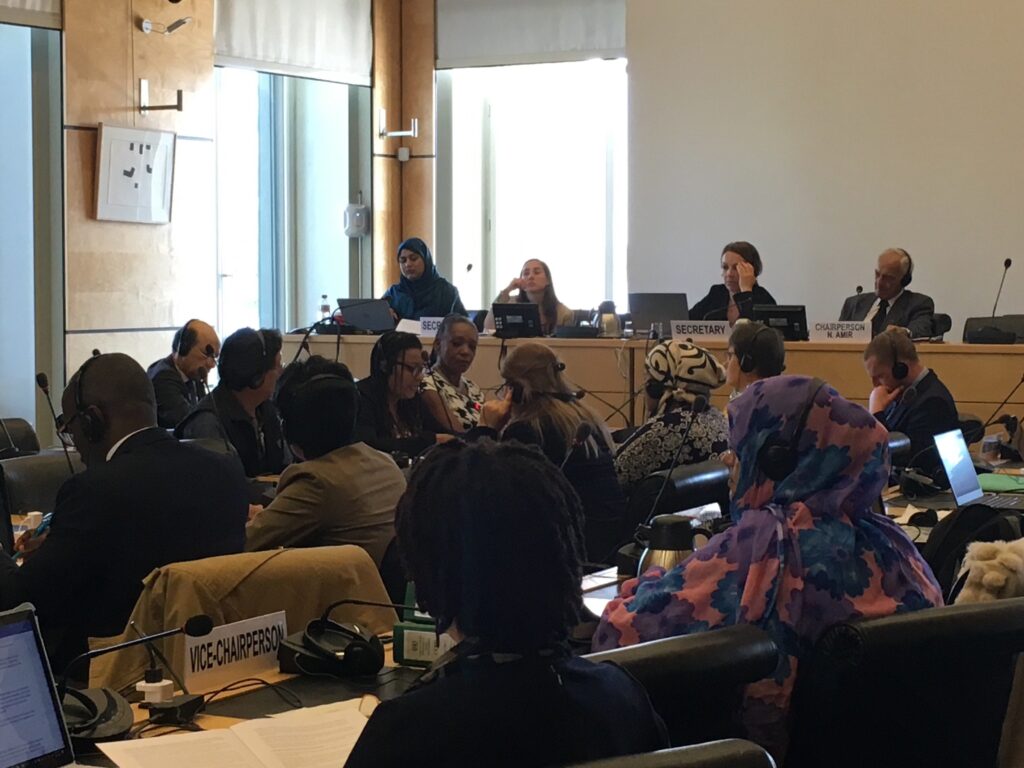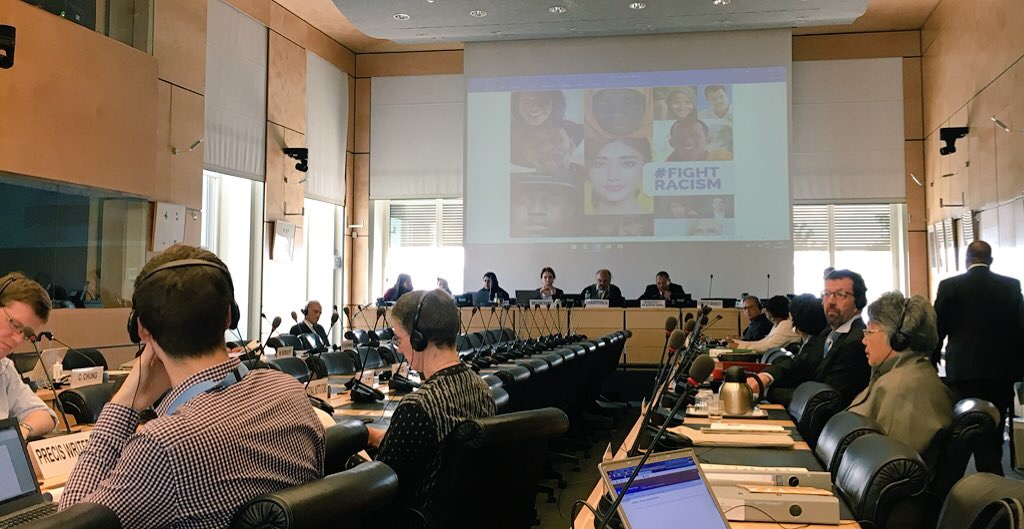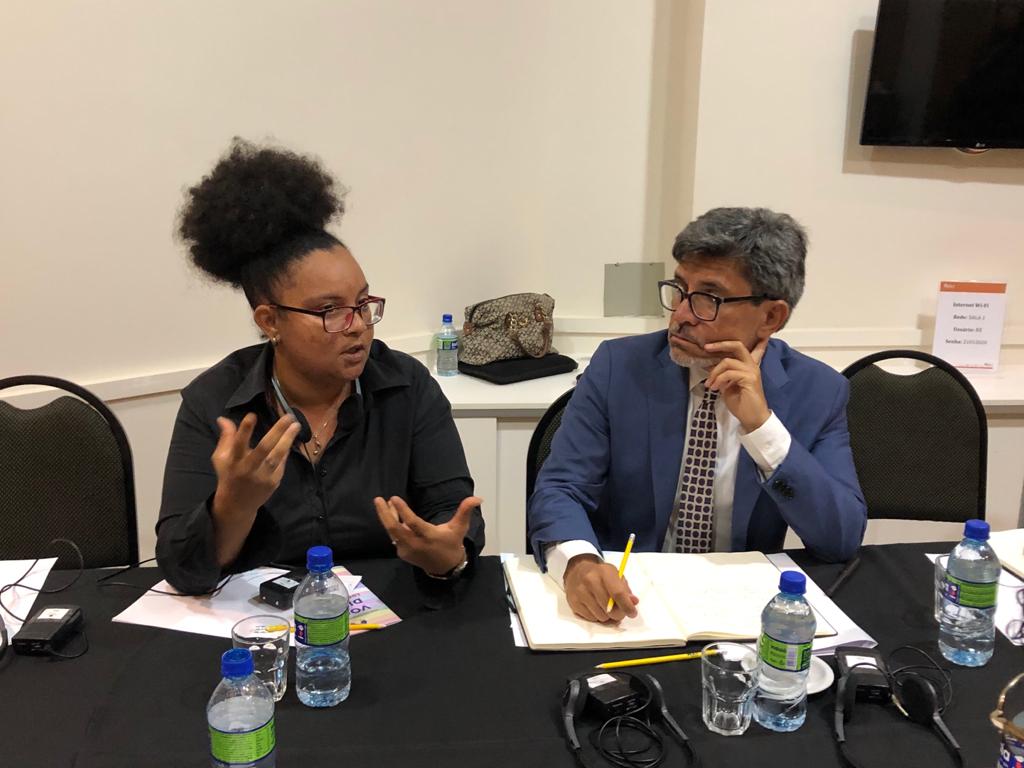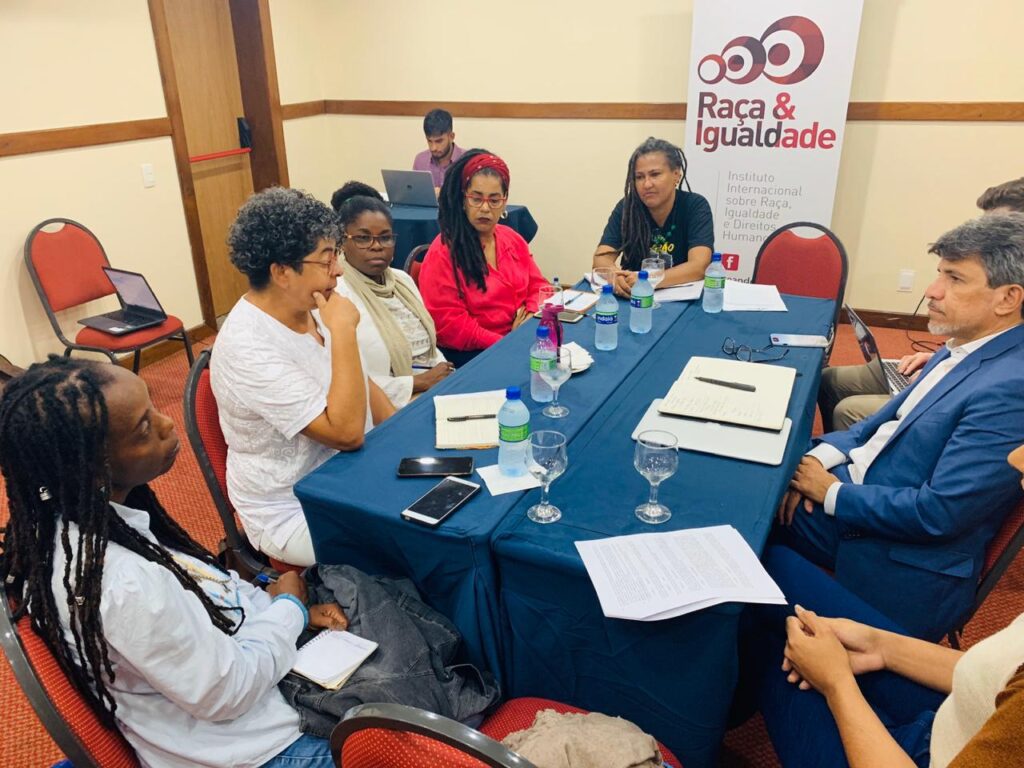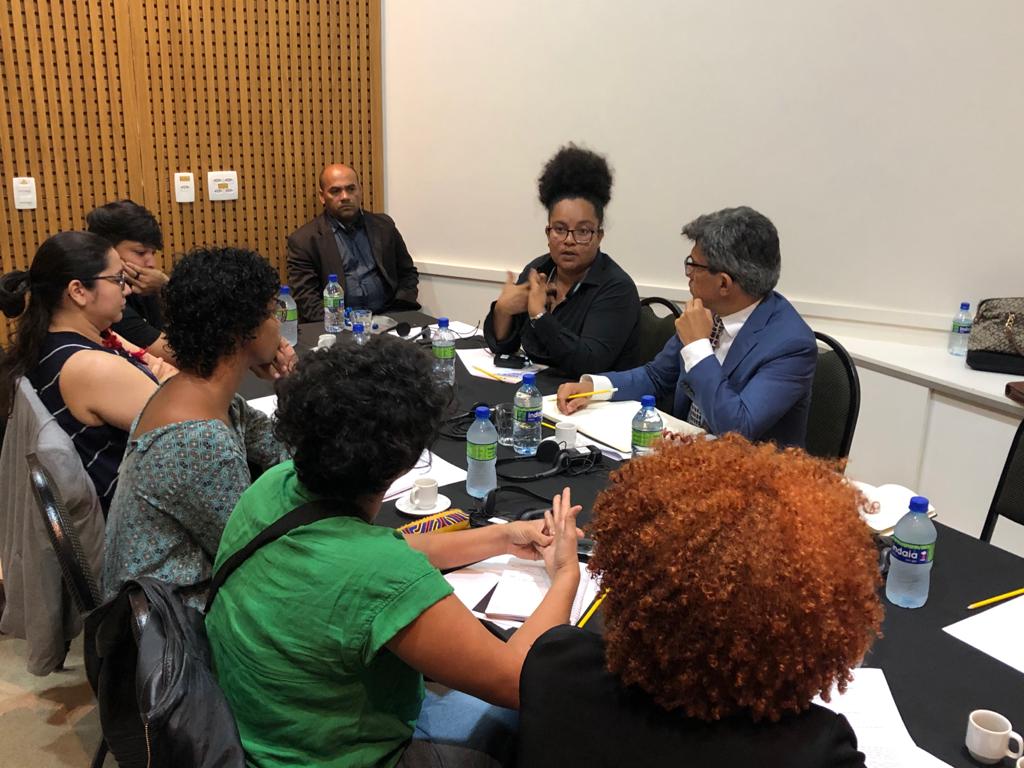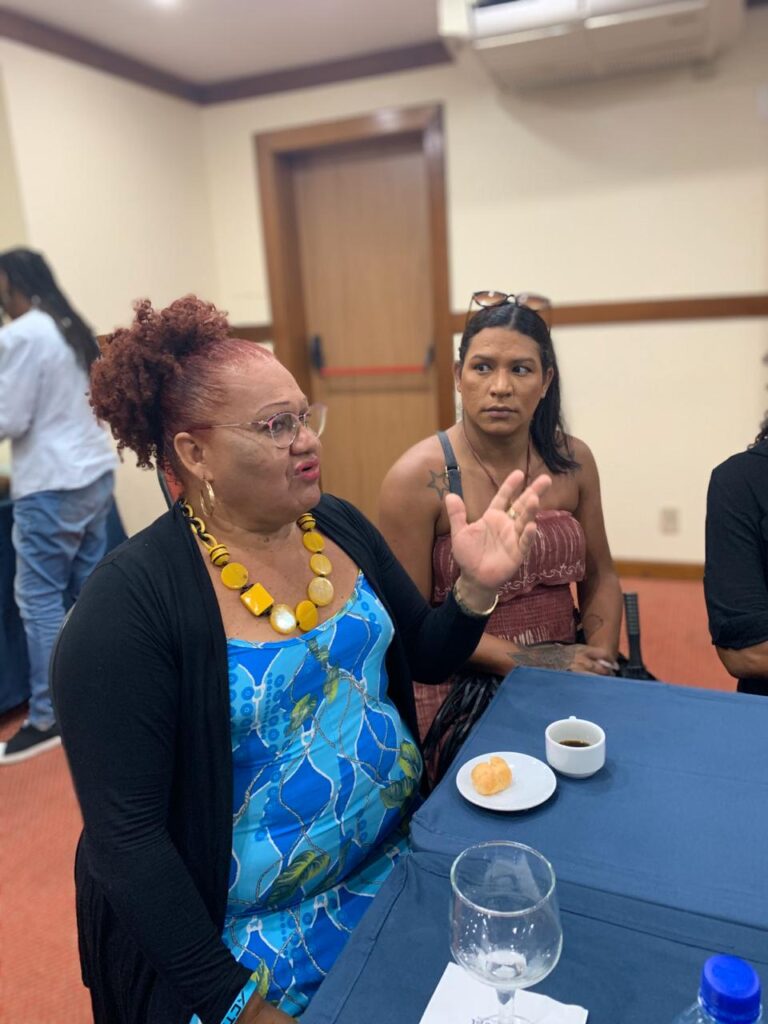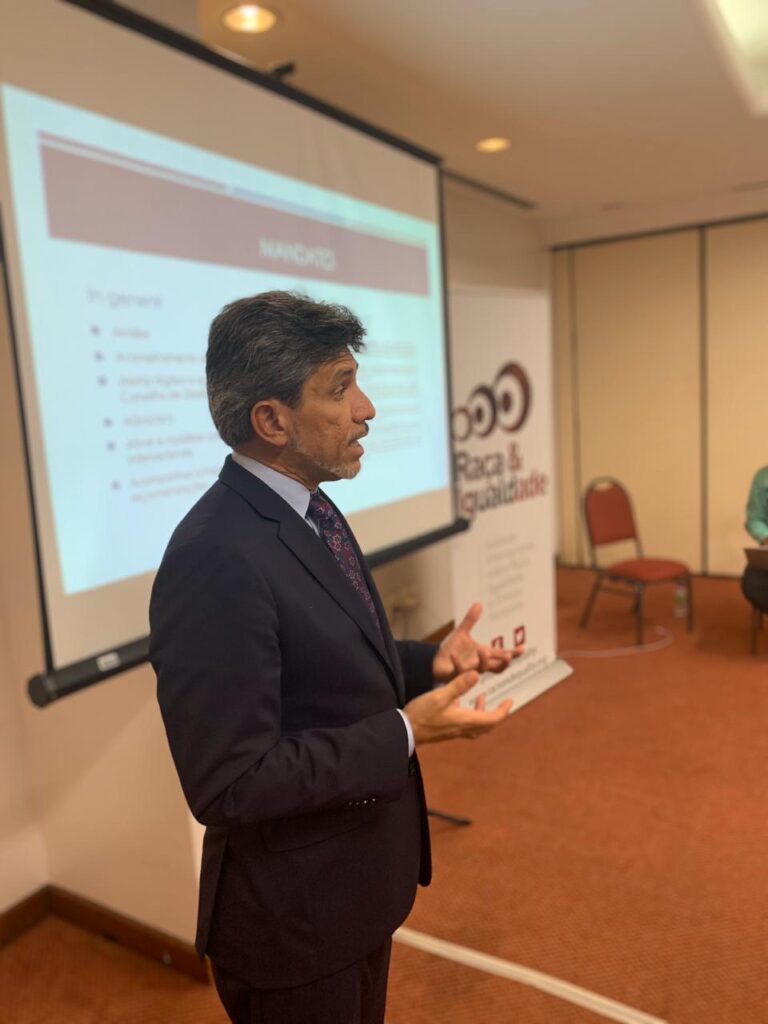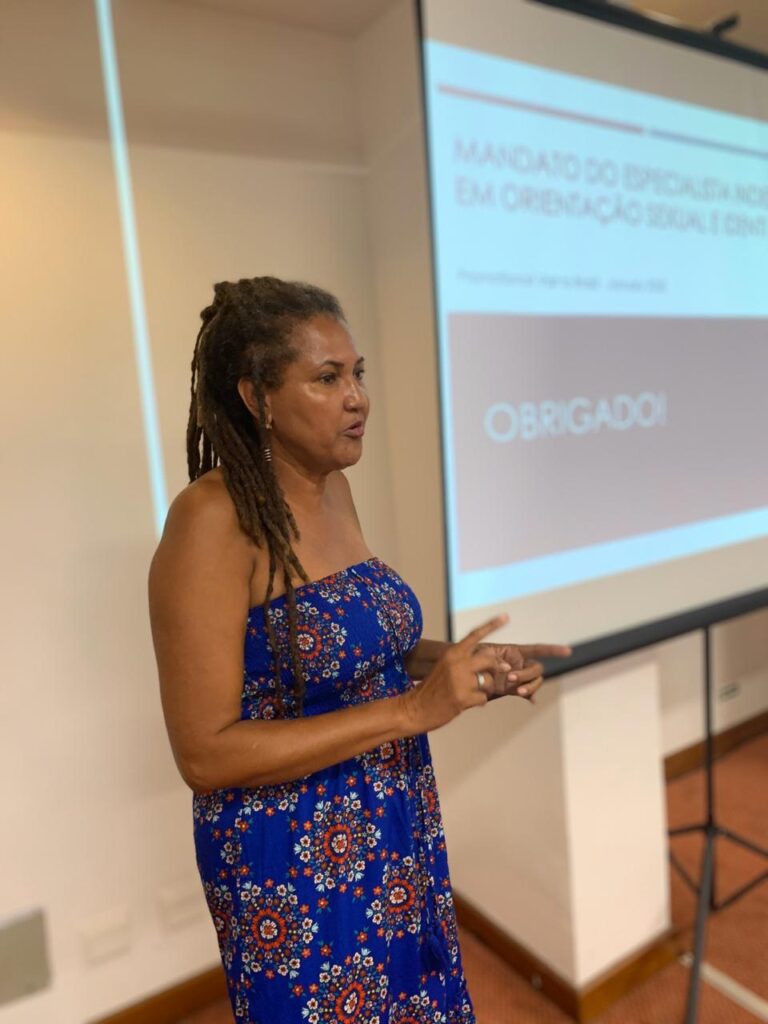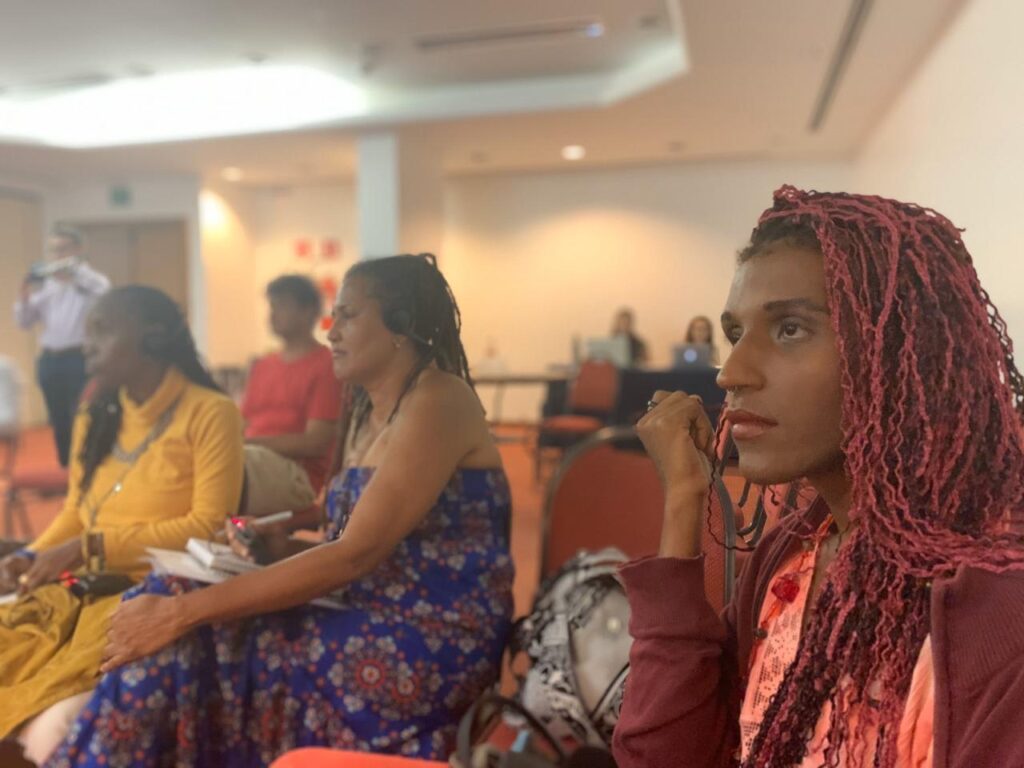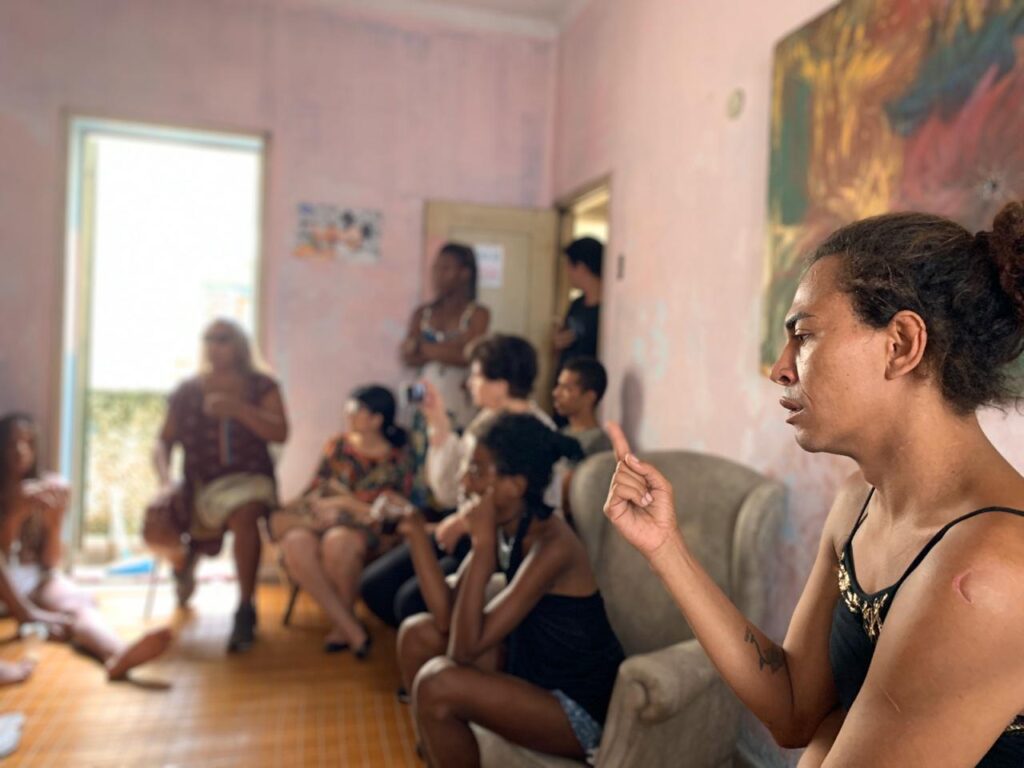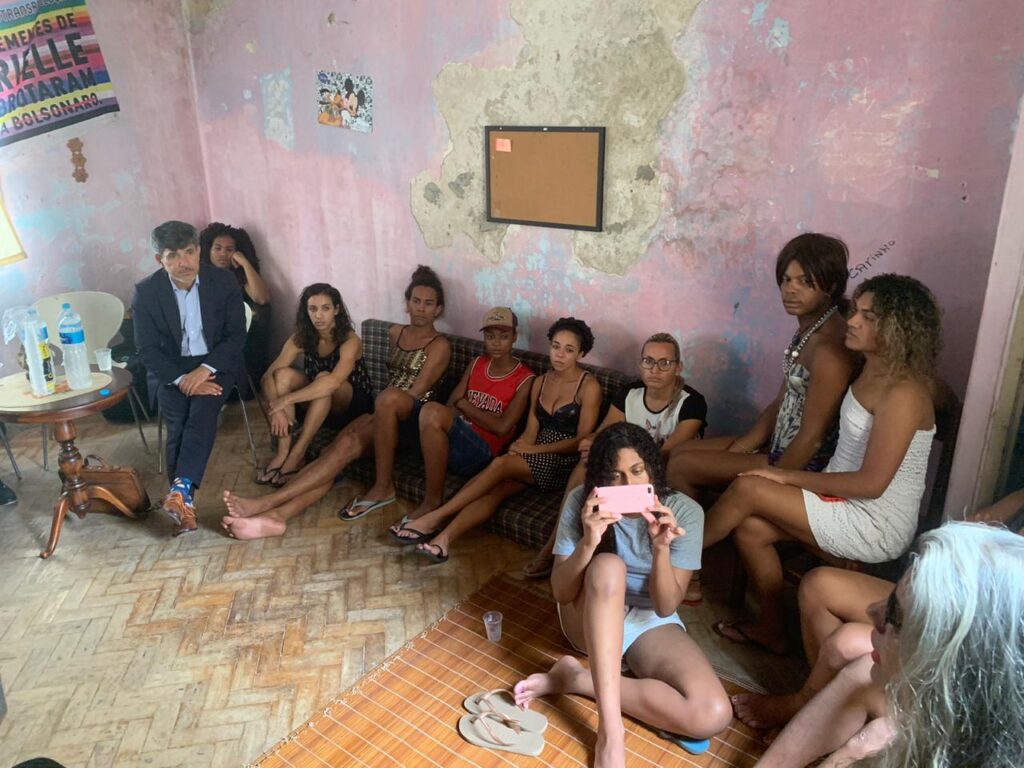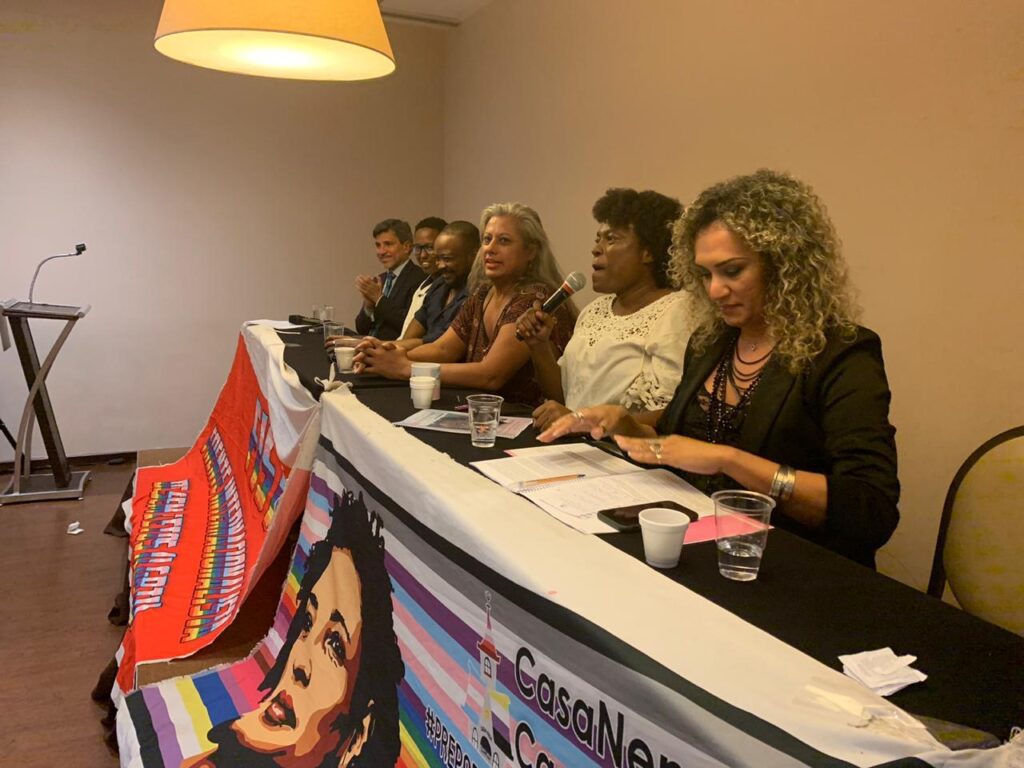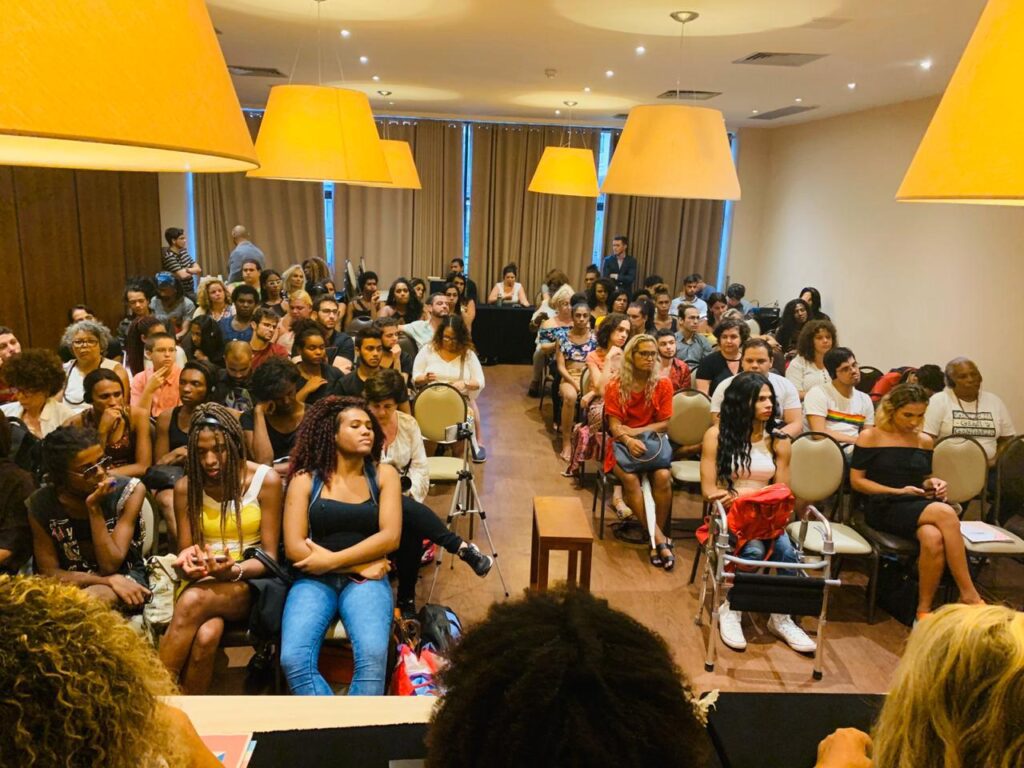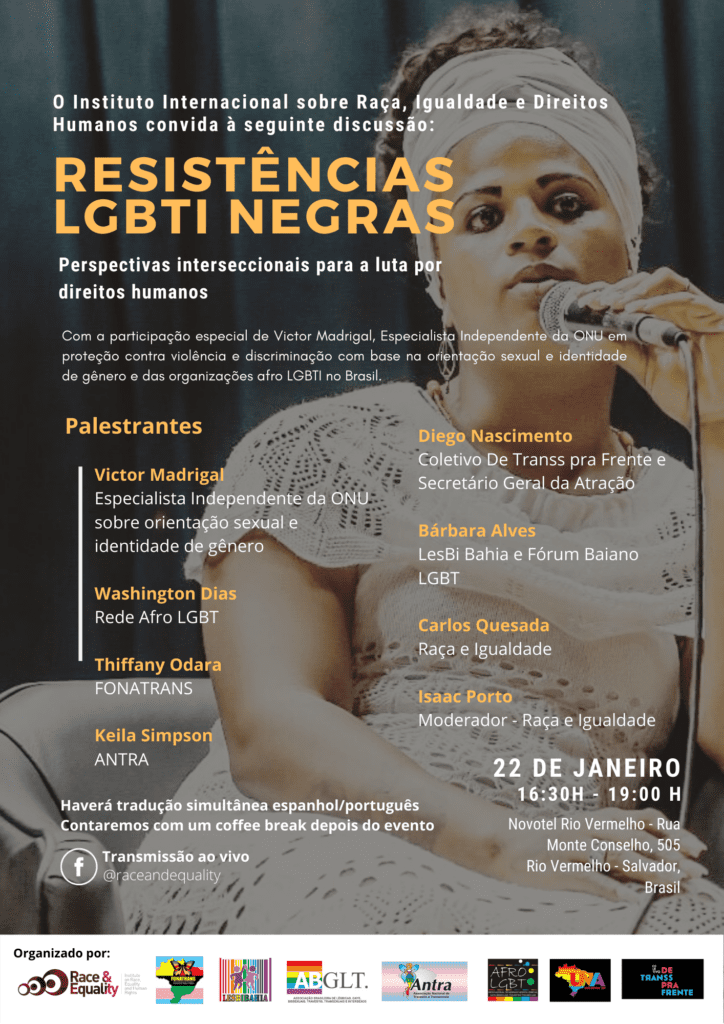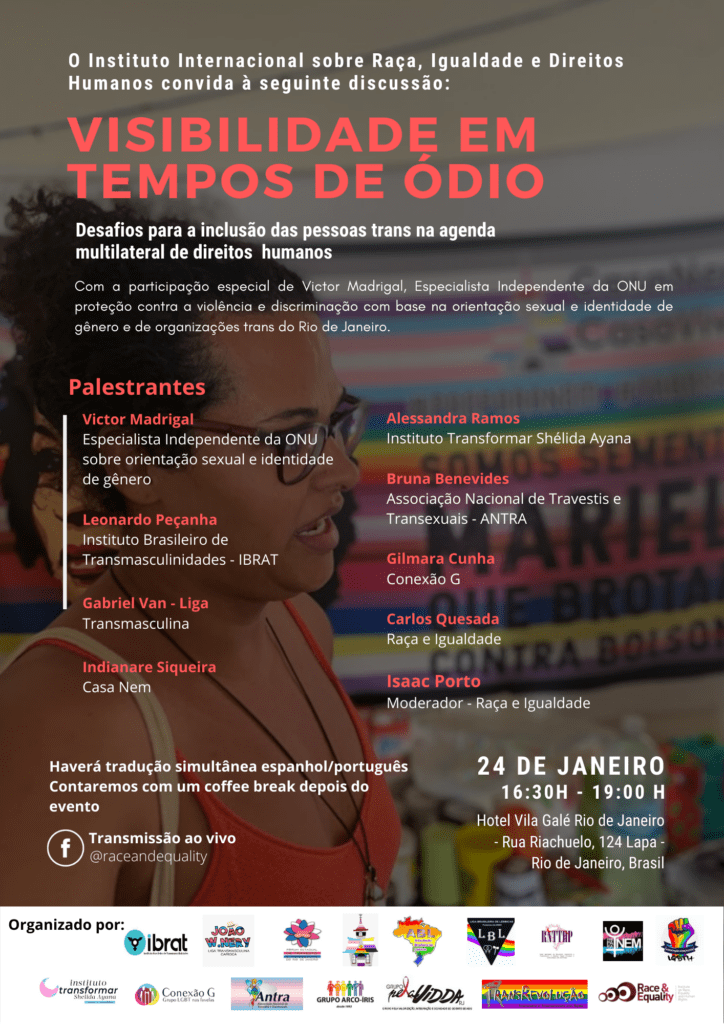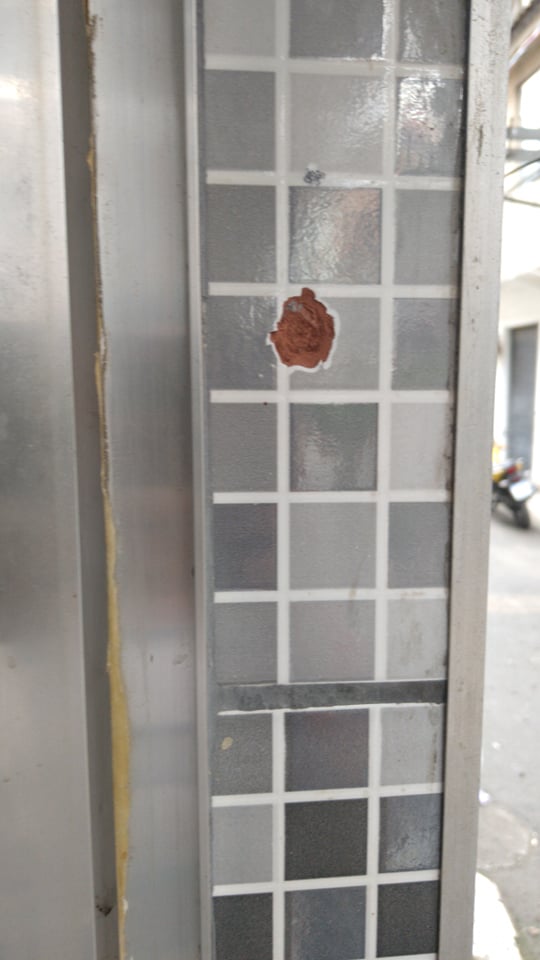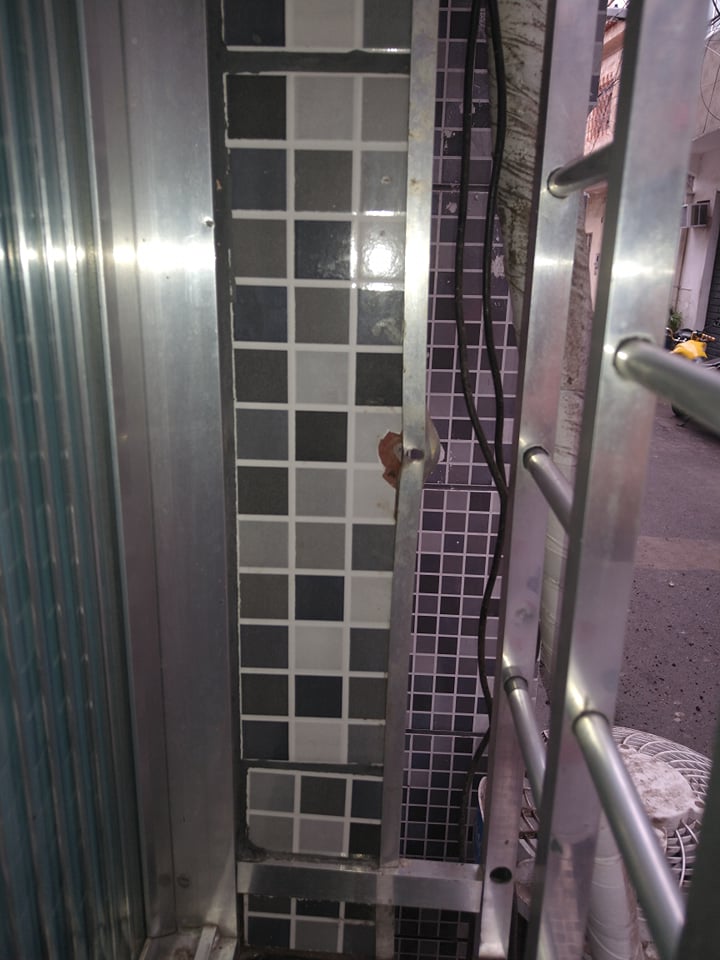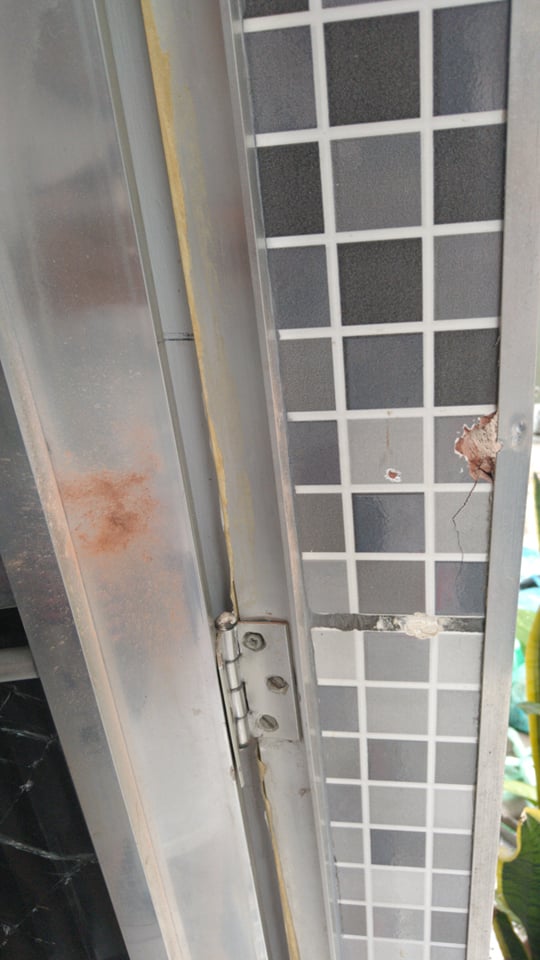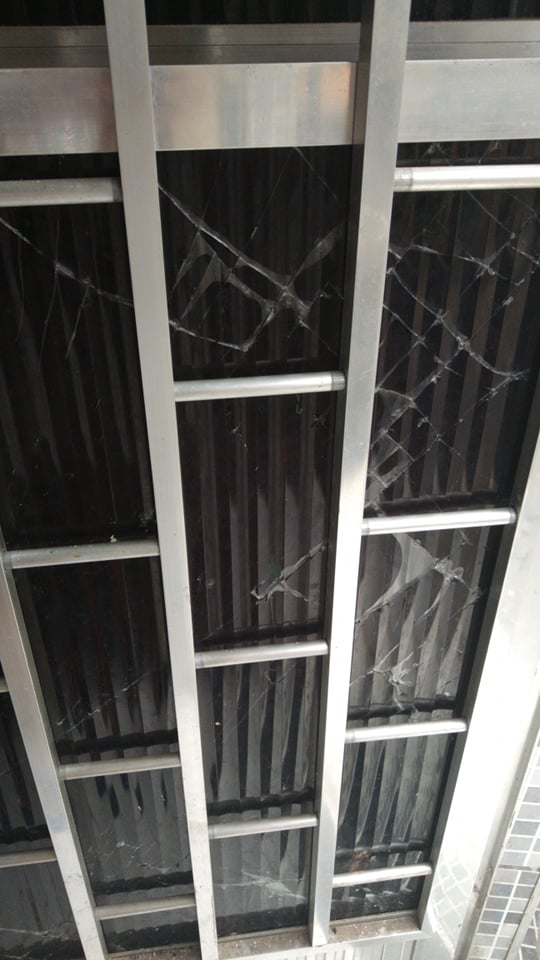The International Institute on Race, Equality and Human Rights expresses concern over the Brazilian State’s response to the progression of the Coronavirus in the country
Brazil, May 21, 2020 – The Institute on Race, Equality and Human Rights (Race and Equality) is deeply concerned about the situation faced by the most vulnerable populations in Brazil amidst the current COVID-19 pandemic, which has killed 18.894 people in Brazil to date,[1] and takes place during a political crisis that reflects the structural inequalities marginalized communities face. On May 19, the country hit the mark of 1000 deaths in a single day.[2]
Since the outbreak of the virus, President Jair Bolsonaro has constantly made threats to Brazilian democracy. Recently, he participated in demonstrations that called for the closure of the National Congress and the Supreme Federal Court (STF),[3] as well as the reinstatement of Institutional Act No. 5 (A I-5),[4] a decree that increased the power of the Brazilian military dictatorship in 1968 and authorized several exceptional measures to be taken.
The pandemic arrives in the country in the face of an intense political crisis, aggravated by a president who has shied away from his responsibility as head of the Executive Branch. He has encouraged disrespect for social distancing, going against the recommendations of the World Health Organization (WHO).[5] Bolsonaro has “accused” the WHO of encouraging masturbation and homosexuality in children from ages zero to four,[6] in what is seen as an LGBTIphobic attempt to demoralize the organization.
To make matters worse, while the country became the epicenter of the pandemic in Latin America[7], when asked about the death toll of COVID-19 in the country, the president responded “So what? I am sorry. What do you want me to do?”, claiming that he does not work miracles.[8]
Additionally, the President insists on using the unproven treatment of chloroquine to assure the population that they can return to work because there is an easy treatment for COVID-19. This attitude made Nelson Teich, the Minister of Health to follow Mandetta, resign without even completing one month in office. To date, it has not yet been defined who will be the next to occupy the position.[13]
In defending the vertical isolation of the population, Bolsonaro seems to disregard the living conditions of a large portion of the population. Many people live in slums, oftentimes in extremely small houses or shacks shared by several members of the same family. Considering the ease with which the virus multiplies in these environments, Bolsonaro’s incentives to ignore isolation have caused the numbers of deaths to skyrocket in Brazil with a higher proportion of death in the Afro-Brazilian population.
Between April 11 and 26, deaths caused by COVID-19 amongst the white population decreased from 62.9% to 52.3%, while deaths amongst the Afro-Brazilian population increased from 33.5% to 45.2%[14]. During this period, the number of Afro-Brazilian who died from COVID-19 increased from 180 to 933, showing the present racial inequalities. In the state of Amazonas, where the health system is already collapsing, data from April 29th shows 850 of those that were seriously all were Afro-Brazilians while 81 were white. Of the people who have died, 343 are Afro-Brazilians and 25 are white.
67% of Brazilians who depend exclusively on the public health system, SUS (Unified Health System), are Afro descendants. They are also the majority of patients with diabetes, tuberculosis, hypertension and chronic kidney diseases, all conditions that aggravate COVID-19. Additionally, the SUS is in the first phase of collapsing. In Rio de Janeiro, for example, populous slums have the highest rates of tuberculosis.[15] Concerningly, the SUS is in the first phase of collapsing putting this people at risk of having no access to health care.
Lúcia Xavier, from the Afro-women’s organization Criola, recalls that a large part of these comorbidities are linked to socio-racial issues, such as lack of basic sanitation, housing conditions, or inadequate food supplies.[16] In other words, structural racism imposes negative consequences on the health of the Afro-descendant population, which worsen and become clearer in the midst of the pandemic.
Despite these realities, when questioned on the subject, the Ministry of Health stated that there are no “technical or scientific studies that point to color or race as a risk factor for the illness,” ignoring how racial inequalities modulate access to health in Brazil.[17]
Women also experience specific consequences of the coronavirus. A study undertaken by the Brazilian Forum on Public Security (FBSP)[18] that monitored social networks recorded an increase in the rate of domestic violence in six Brazilian states (Acre, Mato Grosso, Pará, Rio Grande do Norte, Rio Grande do Sul and São Paulo). The study also noted that women in situations of violence have difficulties accessing to public facilities to register complaints.
The numbers of femicides and female homicides grew, indicating an increase in domestic violence. In São Paulo, for example, comparing the months of March 2019 and March 2020, the number of these deaths increased by 46%. In the first half of April, cases doubled compared to the year before. In Acre, during the same period, cases grew by 67%.[19]
The trasvesti and transgender population are also experiencing disproportionate impacts from COVID-19. Around 90% of transvestis and transsexual women in Brazil use sex work as their primary source of income,[20] and therefore cannot follow social isolation guidelines without giving up their livelihood for survival. There have been several reports of groups that exploit them and force travesty prostitutes and transsexuals to continue working.[21]
The serious situation in which travesti and transsexual women in Brazil are in is reflected in data published in a recent bulletin by ANTRA, the National Association of Travestis and Transsexuals of Brazil. In the first four months of 2020, there was an increase of about 48% in murders of trans people in Brazil compared to the same period in 2019.[22] From January to April 2019, 43 transgender persons were murdered in Brazil; while during the same period in 2020, there have been 64. Isolating the months of March and April, to specifically compare the initial period of the pandemic, there was an increase of 13%. This scenario demonstrates how violent society and the Brazilian State are towards trans people, who are left even more unprotected during the pandemic.
Finally, it is extremely shocking that even during the pandemic, the police in Brazil continue to commit intense acts of violence. On May 19, the murder of 14-year-old Afro-Brazilian boy João Pedro shocked the country. He was killed while playing inside his house during a police operation in Morro do Salgueiro, located in the community of São Gonçalo in the metropolitan region of Rio de Janeiro.[23] The Brazilian police continue to act in a racist manner. People who live in favelas are mostly Afro-descendant and are treated as potential criminals as if their lives have lesser value. Police do not act this way towards the white population who live in affluent areas and have to barriers to practice social isolation.
In a country like Brazil, where racism and structural LGBTIphobia create profound hierarchies and disadvantages for the Afro-LGBTI population in regard to the right to life, dignity and integrity, the neglect and lack of commitment by part of President Jair Bolsonaro in tackling the pandemic could generate extremely serious and irreversible consequences for these vulnerable populations.
In light of this situation, Race and Equality recommends the Brazilian State to take measures to protect these populations, such as:
- a) Immediate reinforcement of social isolation measures;
- b) Guarantee basic hygiene products to those who live in regions without access to sanitation;
- c) Promote awareness campaigns about the risks of coronavirus, specific to groups in situations of greater vulnerability;
- d) Adopt and disseminate online reporting mechanisms for domestic violence, including encouraging friends and neighbors to use these resources if they notice signs of aggression. These campaigns should cover both cis and trans women;
- e) Provide spaces where victims of domestic violence can fulfill social isolation away from their aggressors;
- f) Dismantle sexual exploitation networks, with the support of LGBTI organizations and sex workers, to guarantee the possibility of fulfilling social isolation;
- g) Immediately identify perpetrators of femicides and murders of trasvesti and transsexual women, clarifying the facts in a court of law.
- h) Reassess the need for police operations in slum regions, especially during this period of the worsening pandemic.
Race and Equality urges the Brazilian State to guarantee the dignity of its population, strengthen the health system and disseminate information for the prevention of the pandemic, with special attention to vulnerable people such as Afro-descendant women and LGBTI people, so that their rights are not left unprotected during this crisis.
[1] News Google. Available at: https://news.google.com/covid19/map?hl=pt-BR&mid=%2Fm%2F015fr&gl=BR&ceid=BR%3Apt-419
[2] G1. Cases of Coronavirus and number of deaths in Brasil 19 of May. May 19 2020. Available at: https://g1.globo.com/bemestar/coronavirus/noticia/2020/05/19/casos-de-coronavirus-e-numero-de-mortes-no-brasil-em-19-de-maio.ghtml
[3] BBC. Bolsonaro participates once again in an act criticizing the Supreme Court and Congress.
May 3, 2020. Available at: https://www.bbc.com/portuguese/brasil-52518123
[4] Ato Institutional nº 5, de 13 de dezembro de 1968. Available at: www.planalto.gov.br/ccivil_03/ait/ait-05-68.htm
[5] World Health Organization. Coronavirus disease (COVID-19) advice for the public. Disponível em: https://www.who.int/emergencies/diseases/novel-coronavirus-2019/advice-for-public
[6] Época. Bolsonaro distorts publication and accuses WHO of encouraging masturbation and homosexuality in children. April 30, 2020. Available at: https://epoca.globo.com/brasil/bolsonaro-distorce-publicacao-acusa-oms-de-incentivar-masturbacao-homossexualidade-em-criancas-1-24403161
[7] Uol. Epicenter of pandemic in Latin America, Brasil worries neighbors. May 6, 2020. Available: https://noticias.uol.com.br/ultimas-noticias/afp/2020/05/06/epicentro-da-pandemia-na-america-latina-brasil-preocupa-vizinhos.htm
[8] G1. ‘And? I am sorry. What do you want me to do?’, Says Bolsonaro about coronavirus deaths; ‘I am Messiah, but I do not do miracles’. April 28, 2020. https://g1.globo.com/politica/noticia/2020/04/28/e-dai-lamento-quer-que-eu-faca-o-que-diz-bolsonaro-sobre-mortes-por-coronavirus-no-brasil.ghtml
[9] Uol. Mandetta is dismissed from the Ministry of Health by President Bolsonaro. April 16, 2020: https://noticias.uol.com.br/saude/ultimas-noticias/redacao/2020/04/16/mandetta-demissao-ministerio-da-saude-bolsonaro.htm
[10] Rede Brasil Atual. Bolsonaro indicates minister financed by health plans and investigated for fraud. Nov. 21, 2018: https://www.redebrasilatual.com.br/politica/2018/11/bolsonaro-indica-ministro-financiado-por-planos-de-saude-e-investigado-por-fraude/
[11] Mandetta previously declared that HIV/AIDS campaigns should not include anything that offends families such as pictures of LGBTI people.
[12] O Estado de São Paulo. State and Municipal Representatives Reject Ministry of Health ‘Guidelines’ on Quarantine. May 11, 2020. https://saude.estadao.com.br/noticias/geral,representantes-de-estados-e-municipios-rejeitam-diretrizes-do-ministerio-da-saude-sobre-quarentena,70003299073
[13] Folha de São Paulo. After chloroquine ultimatum, Teich resigns from the Ministry of Health. May 15, 2020. https://www1.folha.uol.com.br/equilibrioesaude/2020/05/apos-ultimato-sobre-cloroquina-teich-pede-demissao-do-ministerio-da-saude.shtml
[14] Pública. In two weeks, the number of blacks killed by coronavirus is five times higher in Brazil. May 6, 2020. https://apublica.org/2020/05/em-duas-semanas-numero-de-negros-mortos-por-coronavirus-e-cinco-vezes-maior-no-brasil/#Link3
[15] https://www.abrasco.org.br/site/outras-noticias/sistemas-de-saude/populacao-negra-e-covid-19-desigualdades-sociais-e-raciais-ainda-mais-expostas/46338/
[16] Folha de São Paulo. Among identified cases, covid-19 is more deadly among blacks in Brazil, data shows. https://www1.folha.uol.com.br/cotidiano/2020/04/coronavirus-e-mais-letal-entre-negros-no-brasil-apontam-dados-da-saude.shtml
[17] Pública. In two weeks, the number of blacks killed by coronavirus is five times higher in Brazil. May 6, 2020. https://apublica.org/2020/05/em-duas-semanas-numero-de-negros-mortos-por-coronavirus-e-cinco-vezes-maior-no-brasil/#Link3
[18] Fórum Brasileiro de Segurança Pública. Technical note: domestic violence during the COVID-19 pandemic.
April 16, 2020. forumseguranca.org.br/wp-content/uploads/2018/05/violencia-domestica-covid-19-v3.pdf
[19] Idem, p. 11.
[20] https://antrabrasil.files.wordpress.com/2020/01/dossic3aa-dos-assassinatos-e-da-violc3aancia-contra-pessoas-trans-em-2019.pdf
[21] RD News. Exploration of cafetinas forces trans to break quarantine and continue on the street. March 22, 2020. https://www.rdnews.com.br/cidades/exploracao-das-cafetinas-obriga-trans-a-descumprir-quarentena-e-continuar-na-rua/125737
[22] Associação Nacional de Travestis e Transexuais. Boletim nº 02/2020. Assassinatos contra travestis e transexuais em 2020. https://antrabrasil.files.wordpress.com/2020/05/boletim-2-2020-assassinatos-antra.pdf
[23] G1. Death of teenager João Pedro during police action causes commotion on the web. May 19, 2020. https://g1.globo.com/rj/rio-de-janeiro/noticia/2020/05/19/morte-do-menino-joao-pedro-durante-acao-policial-causa-comocao-na-web.ghtml

